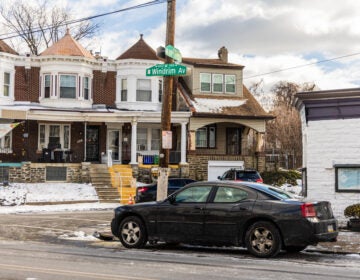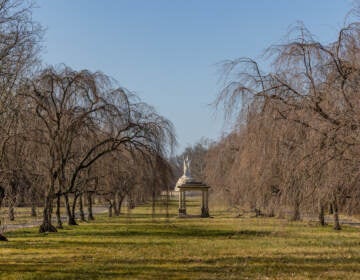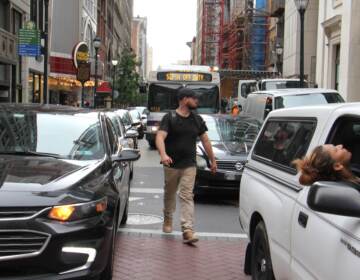Hold your horses: Can old-timey ‘e-carriages’ replace Old City buggies?
Philly activists have met with city officials about replacing horse-drawn carriages with electric buggies. They point to electric vehicles adopted by other cities as a model.
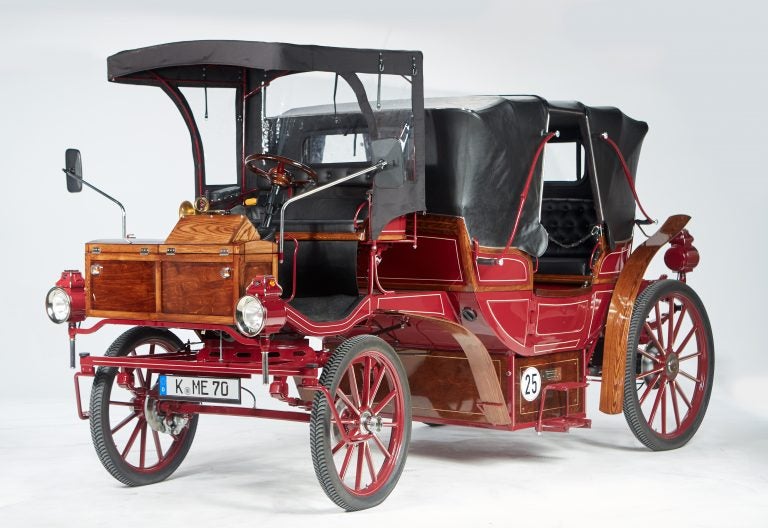
This e-carriage made by ETours replaced horse-driven carriages in German cities. (ETours/ Peter Czwiertnia)
Janet White wants to bring back the horseless carriage.
The animal rights activist and leader of the group Carriage Horse Freedom has an idea she thinks could help the tourism industry shift away from horse-powered buggy rides, a popular draw in the visitor-packed streets of Philadelphia’s oldest neighborhoods.
“You can combine the nostalgic feel of an 18th-century carriage, because they look just like them, but they are battery-operated,” said White. “So there’s no horse, and there’s no suffering involved.”
White envisions elaborate carriages, looking as though they just appeared from the set of Beauty and the Beast, but powered purely by electricity.
White recently made her pitch to Old City Councilmember Mark Squilla and representatives of tourism-related offices including the Global Philadelphia Association, the Philadelphia Convention & Visitors Bureau, and Visit Philadelphia.
“We are bringing people to the table to let them know there is interest in horseless electric carriages,” said Councilmember Squilla, in advance of a meeting last Friday. “And to see if there is an interest in helping promote it and fund some designs for bringing one here to the city of Philadelphia.”
Mike Slocum, the president of the city’s sole remaining carriage company, 76 Carriage Company, did not respond to an email for comment.
Slocum’s business became Philly’s only carriage company in 2017 after the city shuttered his main competitor because of unsafe conditions in their stables.
The animals were being kept in such tight confines that the city’s Department of Licenses and Inspections found that one was “heavily stained with both manure and urine on both his chest, legs, and haunches.”
White said that the electric carriages could provide an alternative to horsepower while preserving jobs and profits for businesses like the 76 Carriage Company.
“I think most people don’t realize the suffering that is involved in creating this horse-drawn carriage ride,” said White.
The horses are “working on congested streets, with whizzing traffic, breathing in exhaust fumes all day. The endless loops pulling heavy carriages in the summer heat,” she said. “There’s really no positive about it.”
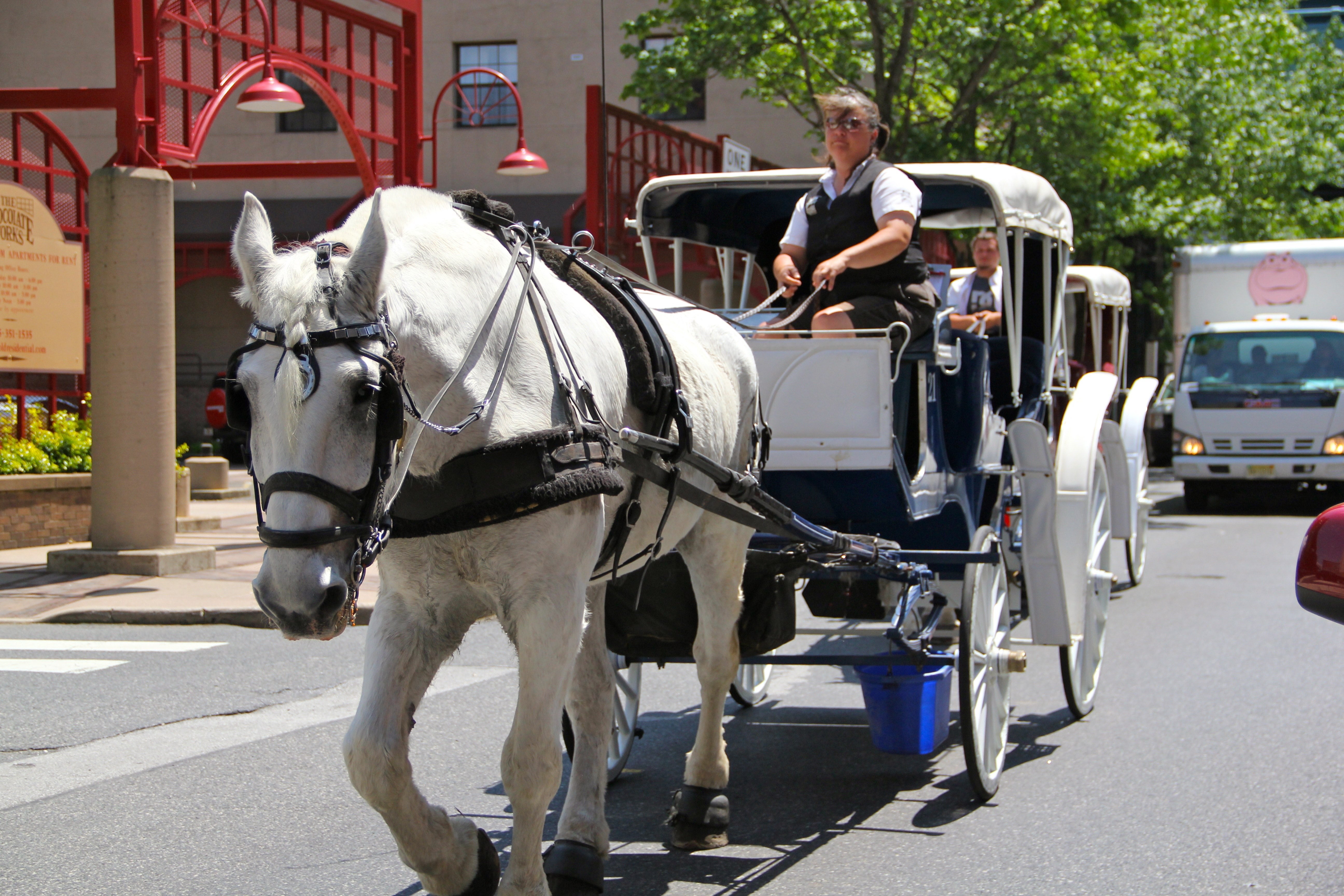
Cities across the globe have banned horse-drawn carriages in light of concerns about animal cruelty. Among the cities that have stopped the practice are Montreal, Salt Lake City, Rome, Barcelona, and Guadalajara, where Squilla has been consulting with city officials on their successful transition to electric carriages.
In New York, animal rights activists commissioned the Creative Workshop, a Florida-based antique auto restoration company, to create a model e-carriage they hoped to bring to Central Park. But the old-timey electric coaches never ended up replacing the park’s popular horse-drawn carriages, despite a campaign promise from Mayor Bill de Blasio to ban the carriages.
No American city, in fact, has adopted electric carriages and a number of regulatory hurdles would have to be overcome before they could roll in Philly streets.
“The vehicles that are currently out here would not be permitted in this country as operational vehicles, so there’s a lot of work to be done before anything like this would be possible,” said Squilla. “But I think that there will come a time when these vehicles will be moving tourists around the city to do what the horse carriages do today.”
If that vision does come to pass, it won’t likely be without a fight from carriage drivers.
Mike Engler has navigated a horse-drawn buggy down Philly streets for 12 years.
His equine colleague, Chipper, is a huge part of the service’s appeal, he said.
Supporting his claim are the small crowds of tourists who regularly wait in line to snap selfies with the huge mammals.
“It just doesn’t seem right,” Engler said. “The ambiance of a horse and carriage going through the neighborhoods, they were designed for horses you know.”
Engler said he loves his job, the way it is.
“I like being outside and meeting people and working with my buddy here, my horse,” said Engler. “I just don’t see it [electric carriages] happening.”
WHYY is your source for fact-based, in-depth journalism and information. As a nonprofit organization, we rely on financial support from readers like you. Please give today.




